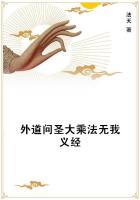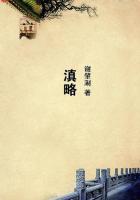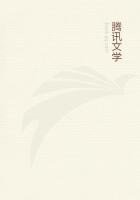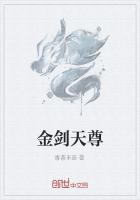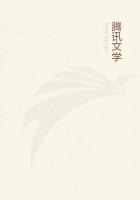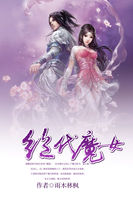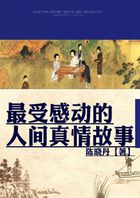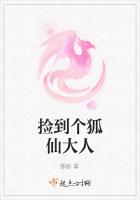"To borrow a phrase which was often used in your day, we should not consider life worth living if we had to be surrounded by a population of ignorant, boorish, coarse, wholly uncultivated men and women, as was the plight of the few educated in your day. Is a man satisfied, merely because he is perfumed himself, to mingle with a malodorous crowd? Could he take more than a very limited satisfaction, even in a palatial apartment, if the windows on all four sides opened into stable yards? And yet just that was the situation of those considered most fortunate as to culture and refinement in your day. I know that the poor and ignorant envied the rich and cultured then; but to us the latter, living as they did, surrounded by squalor and brutishness, seem little better off than the former. The cultured man in your age was like one up to the neck in a nauseous bog solacing himself with a smelling bottle. You see, perhaps, now, how we look at this question of universal high education. No single thing is so important to every man as to have for neighbors intelligent, companionable persons. There is nothing, therefore, which the nation can do for him that will enhance so much his own happiness as to educate his neighbors. When it fails to do so, the value of his own education to him is reduced by half, and many of the tastes he has cultivated are made positive sources of pain.
"To educate some to the highest degree, and leave the mass wholly uncultivated, as you did, made the gap between them almost like that between different natural species, which have no means of communication. What could be more inhuman than this consequence of a partial enjoyment of education! Its universal and equal enjoyment leaves, indeed, the differences between men as to natural endowments as marked as in a state of nature, but the level of the lowest is vastly raised. Brutishness is eliminated. All have some inkling of the humanities, some appreciation of the things of the mind, and an admiration for the still higher culture they have fallen short of. They have become capable of receiving and imparting, in various degrees, but all in some measure, the pleasures and inspirations of a refined social life. The cultured society of the nineteenth century --what did it consist of but here and there a few microscopic oases in a vast, unbroken wilderness? The proportion of individuals capable of intellectual sympathies or refined intercourse, to the mass of their contemporaries, used to be so infinitesimal as to be in any broad view of humanity scarcely worth mentioning.
One generation of the world to-day represents a greater volume of intellectual life than any five centuries ever did before.
"There is still another point I should mention in stating the grounds on which nothing less than the universality of the best education could now be tolerated," continued Dr. Leete, "and that is, the interest of the coming generation in having educated parents. To put the matter in a nutshell, there are three main grounds on which our educational system rests: first, the right of every man to the completest education the nation can give him on his own account, as necessary to his enjoyment of himself;second, the right of his fellow-citizens to have him educated, as necessary to their enjoyment of his society; third, the right of the unborn to be guaranteed an intelligent and refined parentage."I shall not describe in detail what I saw in the schools that day. Having taken but slight interest in educational matters in my former life, I could offer few comparisons of interest. Next to the fact of the universality of the higher as well as the lower education, I was most struck with the prominence given to physical culture, and the fact that proficiency in athletic feats and games as well as in scholarship had a place in the rating of the youth.
"The faculty of education," Dr. Leete explained, "is held to the same responsibility for the bodies as for the minds of its charges. The highest possible physical, as well as mental, development of every one is the double object of a curriculum which lasts from the age of six to that of twenty-one."The magnificent health of the young people in the schools impressed me strongly. My previous observations, not only of the notable personal endowments of the family of my host, but of the people I had seen in my walks abroad, had already suggested the idea that there must have been something like a general improvement in the physical standard of the race since my day, and now, as I compared these stalwart young men and fresh, vigorous maidens with the young people I had seen in the schools of the nineteenth century, I was moved to impart my thought to Dr. Leete. He listened with great interest to what Isaid.
"Your testimony on this point," he declared, "is invaluable.
We believe that there has been such an improvement as you speak of, but of course it could only be a matter of theory with us. It is an incident of your unique position that you alone in the world of to-day can speak with authority on this point. Your opinion, when you state it publicly, will, I assure you, make a profound sensation. For the rest it would be strange, certainly, if the race did not show an improvement. In your day, riches debauched one class with idleness of mind and body, while poverty sapped the vitality of the masses by overwork, bad food, and pestilent homes. The labor required of children, and the burdens laid on women, enfeebled the very springs of life.
Instead of these maleficent circumstances, all now enjoy the most favorable conditions of physical life; the young are carefully nurtured and studiously cared for; the labor which is required of all is limited to the period of greatest bodily vigor, and is never excessive; care for one's self and one's family, anxiety as to livelihood, the strain of a ceaseless battle for life--all these influences, which once did so much to wreck the minds and bodies of men and women, are known no more. Certainly, an improvement of the species ought to follow such a change. In certain specific respects we know, indeed, that the improvement has taken place. Insanity, for instance, which in the nineteenth century was so terribly common a product of your insane mode of life, has almost disappeared, with its alternative, suicide."

